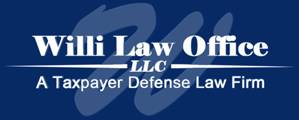Trust Fund Recovery Penalty Issues
As a small business owner, you are required to withhold Medicare, Social Security and income tax from your employees, and deposit these funds with the IRS. If a business collects taxes on behalf of the IRS but then doesn’t send them to the government, the IRS will aggressively assess and collect those unpaid funds. In addition to assessing the amount of unpaid funds and interest, a “trust fund recovery penalty,” equal to 100% of the unpaid funds, is assessed.
Just like payroll tax obligations, liability does not just stay with the business. Again, the IRS spreads it to you, too – business owners, officers, and other “responsible persons” are personally liable for the trust fund recovery penalty. And, in some cases, an employee considered to be a “responsible party” may also be liable for the trust fund recovery penalty. Like payroll tax debt, the trust fund recovery penalty cannot be discharged in bankruptcy, no matter how old the tax liability is.
Having trust fund recovery penalty debt is probably the most critical tax issue your business may have to contend with. The IRS highly prioritizes unpaid payroll tax collections. The results of unpaid trust fund recovery penalty vary depending on your circumstances. Consequences of prolonged delinquent penalties may result in IRS liens and levies to collect the debt.
Ignoring The Process Can Make Collections Worse
Do not ignore or prolong paying your tax debt. If your business is facing a trust fund recovery penalty, you may be able to negotiate a payment plan with the IRS. Most businesses are able to craft a payment arrangement that allows them to pay the balance of the penalty down while still having enough money to continue their monthly operations as well as stay abreast of future payroll tax payments.
Don’t Delay! Contact Us Today To Explore Your Options!
If you have a tax problem and would like to schedule a complimentary phone consultation with one of our tax professionals, please complete and submit our complimentary case evaluation form. After reviewing your information and evaluating your case, we will contact you to schedule a complimentary phone consultation with one of our experienced tax professionals.


